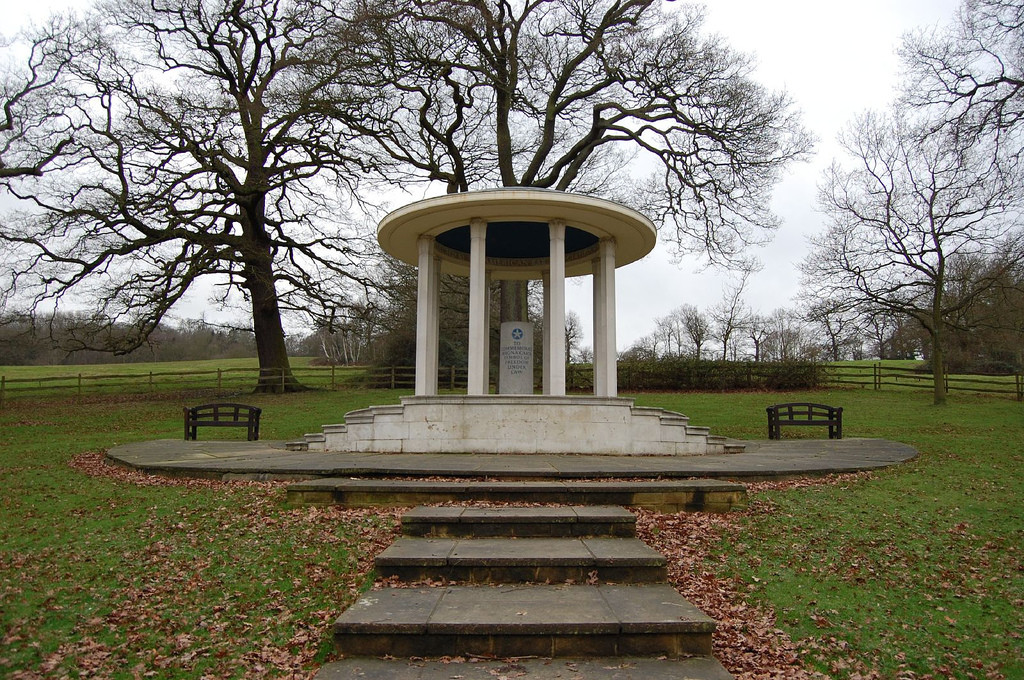A new constitutional settlement for the UK would be the most fitting Magna Carta celebration
On the day of the 800th anniversary of the Magna Carta, Andrew Blick argues that, in the realm of constitutional matters, we need to look forward as much as backward.

Credit: Ben Kinrade, CC BY 2.0
Today, Monday 15 June 2015 we will be busy celebrating the 800th anniversary of the sealing of Magna Carta. Rightly so. The importance of this text as a symbol of democracy and freedom, however much it is misrepresented, is beyond dispute.
But the self-congratulation that will inevitably ensue regarding the supposed superiority of the UK constitution is less justifiable. We have always had a share of difficulties, disputes and disruption around our system of government. And we certainly have them now, over such issues as the European Union, the Human Rights Act, and the future of the Union.
Arising from this latter area of controversy, another important event, that will not receive the same level of attention as Magna Carta, but that relates directly to contemporary matters, takes place today.
The House of Commons will begin debating the Scotland Bill. This legislation is intended to give statutory expression to the promises made to Scotland to induce it to vote against independence during the referendum campaign of last year, subsequently fleshed out by the Smith Commission.
The discussion in the House will touch upon some of the most important aspects of our constitutional system, as is apparent from the various amendments Members have tabled.
I can illustrate this point by considering the alterations proposed to the Bill by one MP, Graham Allen, Chair of the now-defunct Commons Political and Constitutional Reform Committee during the last Parliament. The amendments he has proposed could provide a focus for debate in a number of fields, including whether the UK Parliament should under any circumstances be permitted to legislate in areas that are the business of the Scottish Parliament.
Mr. Allen is also proposing that the existence of the Scottish Parliament and Government, that the Bill seeks to declare as being permanent, is given a harder legal entrenchment than presently on offer, protecting it through inserting a new reference in the Parliament Act of 1911.
The 1998 Scotland Act would then more clearly resemble a written constitution for Scotland, and it would formally be given this name to reflect its status. Mr. Allen also envisages that any alterations to the Human Rights Act 1998, in as far as they impacted upon the devolved institutions in Scotland, would require the consent of the Scottish Parliament. Furthermore, he is putting forward a scheme that would allow the Scottish Parliament to return members to the House of Lords, and under which it could, if it chose, introduce an elected element to the Second Chamber. This change would be a first step towards a fully federal UK, with the House of Lords transformed into a chamber of the nations and regions.
Finally, a constitutional convention would be set up to consider the implications of all these transformations for the UK as a whole. There is no reason why the degree of self-government being extended to Scotland should not be available to all of us, and a convention would be a good way of instigating this process of home rule all round. If the government were to show support for this convention idea today, it would be the best possible way of marking the Magna Carta anniversary. This occasion could then encourage us to look to the future, as well as celebrating the past.
Note:This piece represents the views of the author and not those of Democratic Audit or the LSE. Please read our comments policy before posting.
—
 Andrew Blick is a Lecturer at King’s College London, and the author of Beyond Magna Carta: a constitution for the United Kingdom(Oxford, Hart, 2015 forthcoming). He is an author of Democratic Audit’s 2012 Audit of Democracy.
Andrew Blick is a Lecturer at King’s College London, and the author of Beyond Magna Carta: a constitution for the United Kingdom(Oxford, Hart, 2015 forthcoming). He is an author of Democratic Audit’s 2012 Audit of Democracy.





 Democratic Audit's core funding is provided by the Joseph Rowntree Charitable Trust. Additional funding is provided by the London School of Economics.
Democratic Audit's core funding is provided by the Joseph Rowntree Charitable Trust. Additional funding is provided by the London School of Economics.
A new constitutional settlement for the UK would be the most fitting Magna Carta celebration: https://t.co/NxT7VSe6lG
A new constitutional settlement for the UK would (have been) the most fitting Magna Carta celebration https://t.co/vWqzDDLIvA
A new constitutional settlement for the UK would be the most fitting Magna Carta celebration https://t.co/aCTI5kv9NA
A new constitutional settlement for the UK would be the most fitting Magna Carta celebration https://t.co/XJN7CfHMFu
#ukip American approval
A new constitutional settlement for the UK would be the most fitting Magna Carta celebration https://t.co/JJFsKawccO #Option2Spoil
A new constitutional settlement for the UK would be the most fitting Magna Carta celebration https://t.co/pZrHV2I2jH https://t.co/lPd9jxsLfR